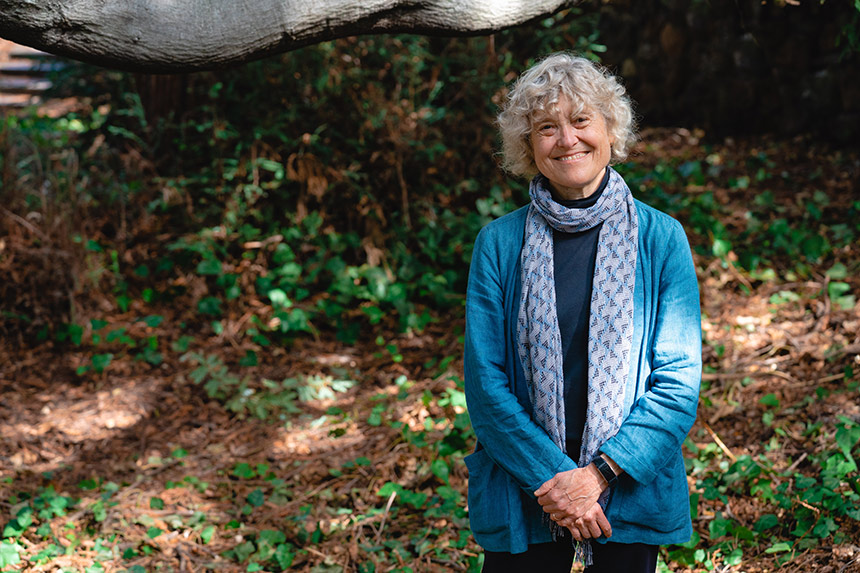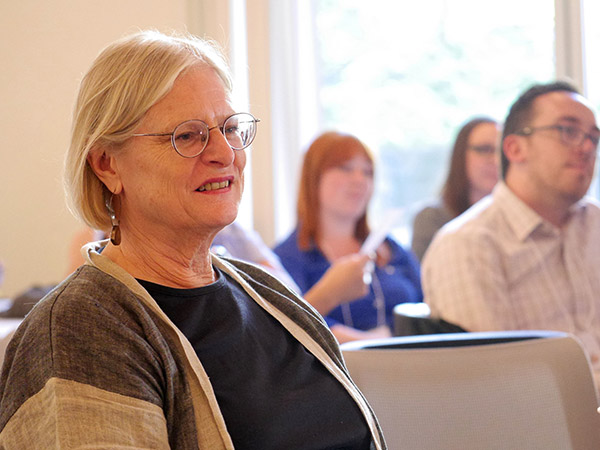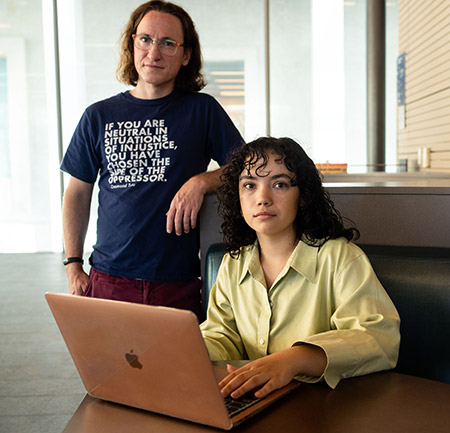
By Andrew Cohen
Founded in 2012, Berkeley Law’s Center on Reproductive Rights and Justice became the first law-school-based interdisciplinary think tank on reproductive issues and a key hub for academics, practitioners, advocates, and activists. But when the previous executive director departed and the faculty director finished her term in close succession in early 2022, activity waned.
With countless new challenges following the Supreme Court overruling Roe v. Wade in Dobbs v. Jackson Women’s Health Organization, Professor Kathryn Abrams knew that quietude couldn’t last. Working with Professor Emerita and center founding director Kristin Luker to rev it up again, Abrams has been planning programming, laying the fundraising groundwork, updating the center’s website, and more while she and Luker search for a new executive director.
“Three factors contributed to reenergizing the center,” Abrams says. “The first, of course, was Dobbs. The reproductive rights and justice landscape changed radically when the Supreme Court overruled Roe with an opinion that validated originalism, looked to the mid-19th century for its vision of women’s rights, and turned the question of regulating abortion back to the states.

“The second was Kristin’s persistent efforts. She’d continued to correspond with past benefactors and foundation funders, survey developments in the field, and scan the horizon for necessary personnel. The third is my interest in legal inequality and the social movements that challenge it. I had hoped to pursue a project that focused on gender-driven social movements, then Dobbs was decided.”
With states imposing immediate restrictions on abortion care and enacting legislation penalizing and sometimes criminalizing abortion, Abrams says these measures reach not only the abortion of unplanned pregnancies, but also treatment for miscarriage or fatal fetal diagnoses — putting physical health and mental wellbeing for many at risk.
With the U.S. now a patchwork of state systems with immense variety and harsh consequences for those in restrictive states, the center will connect scholars with practitioners, advocates, and organizers to develop strategic initiatives.
“These changes and the growing exodus of medical professionals from restrictive states reduced access to reproductive healthcare of all kinds,” Abrams laments. “They have also exacerbated preexisting healthcare disparities, making people of color and low-income people even more vulnerable. Centering the experience and advocacy of Black women — who have framed and led the struggle for reproductive justice — and other women of color within reproductive coalitions is a necessary step toward more comprehensive solutions.”
Collaborating on strategic advocacy
Abrams met last spring with Cassidi Mignuolo ’25 and Jordan Hefcart ’25, co-leaders of Berkeley Law’s student-led Reproductive Justice Project, and the students are eager to partner with the center this year and help fuel its reemergence.

“I joined the Reproductive Justice Project as a co-leader because I saw firsthand how the law surrounding reproductive rights is changing rapidly, leaving many women and others around the country without clear options or hope in the midst of life-changing situations,” Mignuolo says. “My goal is for our group to collaborate with the center, find solutions to access, and fight the pushback to move forward, regardless of the current social climate.”
The center will support coalitions that amplify the voices of those most affected, and offer research and advocacy support for programs that address reproductive inequalities, including but not limited to access to abortion. Abrams says these might include such initiatives as extending postpartum care under Medicaid, requiring insurance coverage for healthcare workers such as midwives and doulas, and advancing research and policy that address the drivers of racial disparities in maternal mortality.
Lunch talks, partnerships with student-led groups, coursework, and externships are also on the agenda.
“In the midst of the most systematic attack on reproductive rights in 50 years, it is both essential and fitting that Berkeley Law lead the effort to protect those rights,” Hefcart says. “Revitalizing the center will attract even more top-notch students and faculty to Berkeley to work on these issues, create a coordinated hub of scholarship and activism, and ensure that California continues to lead the country in advancing justice and fundamental human rights.”
Given the challenges and uncertainty ahead as states veer off in different policy directions, Abrams relishes the chance to help train budding lawyers eager to protect women’s rights.
“We hope to offer fellowships for summer work and ultimately post-doctoral fellowships because students are a key constituency of the center,” she says. “We aim to help prepare the next generation of legal advocates for reproductive rights and justice, and create a more knowledgeable and engaged public that can be part of state and local solutions.”